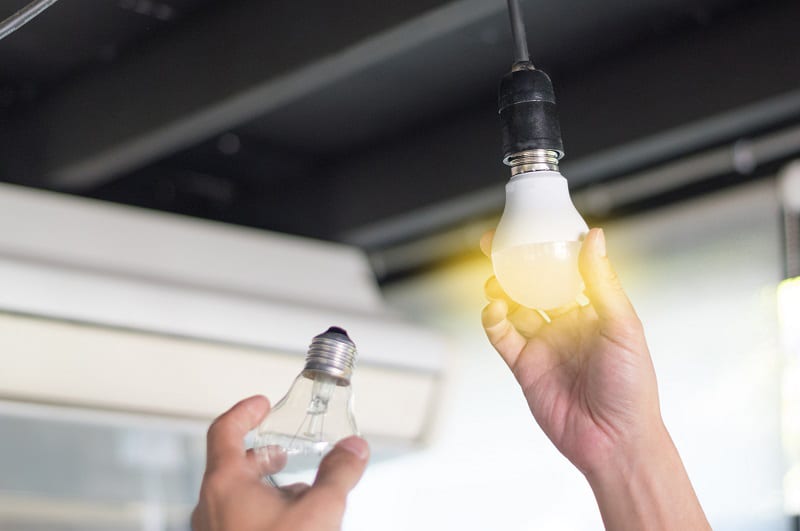5 Ways to Conserve Energy at Home
According to ENERGY STAR®, as much as half of your energy usage goes towards heating and air conditioning your home. The other half? Well, that’s up to you and your family’s personal habits. Cooking, laundry, TV, computers, smart gadgets – they can all add up to some big utility bills.

There are dozens of ways to conserve energy in your home, but here are five recommendations from the experts at Carrier.
1. Heating, Ventilation and Cooling (HVAC)
When the biggest singular user if energy in your home is your HVAC system, it makes sense to start there. Whether you are replacing your current system, or making adjustments with the one you have currently, here are ways to reduce costs for heating and cooling your home:
- When it’s time for a new system, upgrade to a higher efficiency, ENERGY STAR rated system which can save as much as $115/year
- Go geothermal – another replacement option, geothermal systems take the savings even higher – as much as $500 - $1500 annually
- Have your ducts sealed and insulated
- Install a programmable thermostat – while the savings might be less dramatic, the cost for this options is less dramatic as well
- Have your system professionally cleaned and inspected twice annually
- Replace air filters as recommended
2. Insulate, Seal & Repair
Another way to save on the heating and cooling bills is to keep conditioned air inside, and uncomfortable conditions outside. Sealing leaks and adding insulation can save up to 10% on your annual energy bills.
Here’s how:
- Have your home’s insulation evaluated, and consider adding insulation to attics, basements and crawlspaces
- Repair/seal any air leaks in your attic, basement or crawlspace
- Caulk around windows
- Add/update weather stripping on doors
3. Pull the Plug, Figuratively AND Literally
From lights, to electronic gadgets to appliances, your home is full of electricity-using devices. You can cut your costs by better managing how and when they are used, and by switching to more energy-efficient items.
- If you haven’t done so already, switch to higher efficiency CFL or LED light bulbs
- Replace older, less efficient appliances with ENERGY STAR® certified models
- Electronic devices like TVs, DVRs, sound bars, and home theater systems continue to use electricity even when turned off – put them on a power strip
- Especially during the summer, try to avoid using heat generating appliances – hang your laundry to dry, or do more cooking outside on the grill
4. Wise up With Water
Next to your HVAC system, a water heater can be the next biggest drain on your energy usage – around 14% - 25%. And whether you heat it with gas or electricity, here are some water-wise ways to stop guzzling energy with your water heater:
- Be sure to select an energy-efficient model when you replace a failing water heater
- Reduce the temperature setting heater to 120⁰F
- Your dishwasher actually uses less hot water than washing by hand
- When using your dishwasher, be sure it is fully loaded, every time
5. Pull the Plug, Part II – Going Solar
Want to reduce, or potentially eliminate writing checks to the electric utility in your area? Consider installing a solar panel system and start harnessing your own power. The cost to install solar panels, for now, can be partially subsidized by U.S. tax credits along with many other local inactive programs. Benefits of investing in a solar panel system for your home include:
- Cost savings through reduced electric bills – savings will vary based on a number of factors
- Increase home value – one study showed an average increase of $15,000
- Environmental impact – solar systems can reduce greenhouse gas emissions, NOX emissions, sulfur oxide emissions and reduces water usage
Turn to the Experts
As you consider the many energy-saving options for your home, remember that your HVAC system is probably the biggest source of energy usage. For more information about ENERGY STAR® certified heating and cooling products that can increase your comfort while decreasing energy usage, contact your local Carrier HVAC contractor for a professional assessment of your indoor comfort needs.

